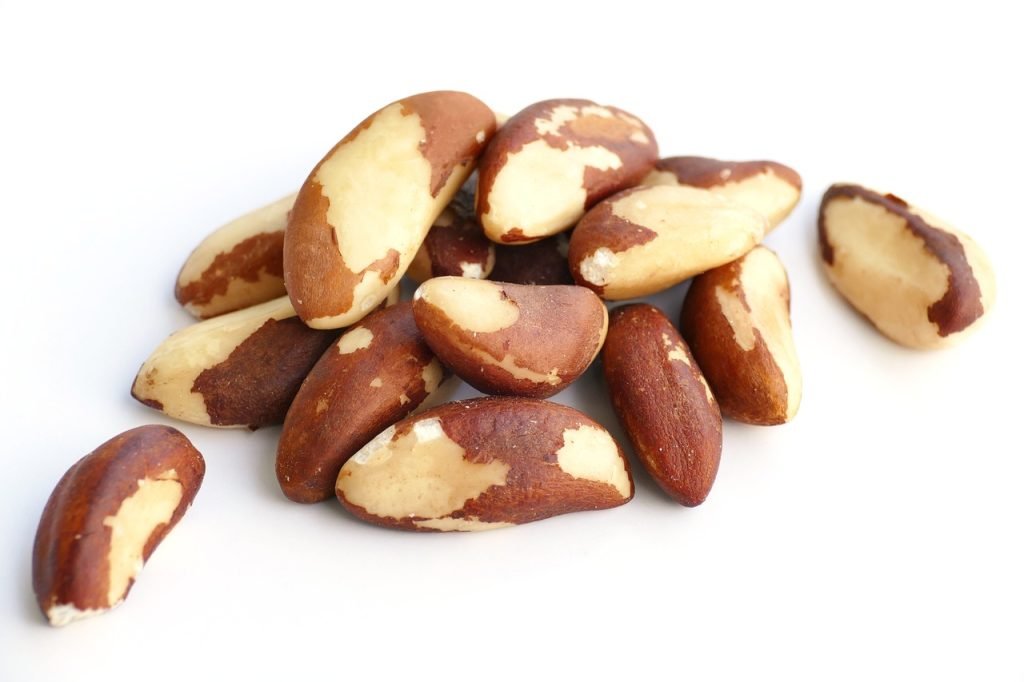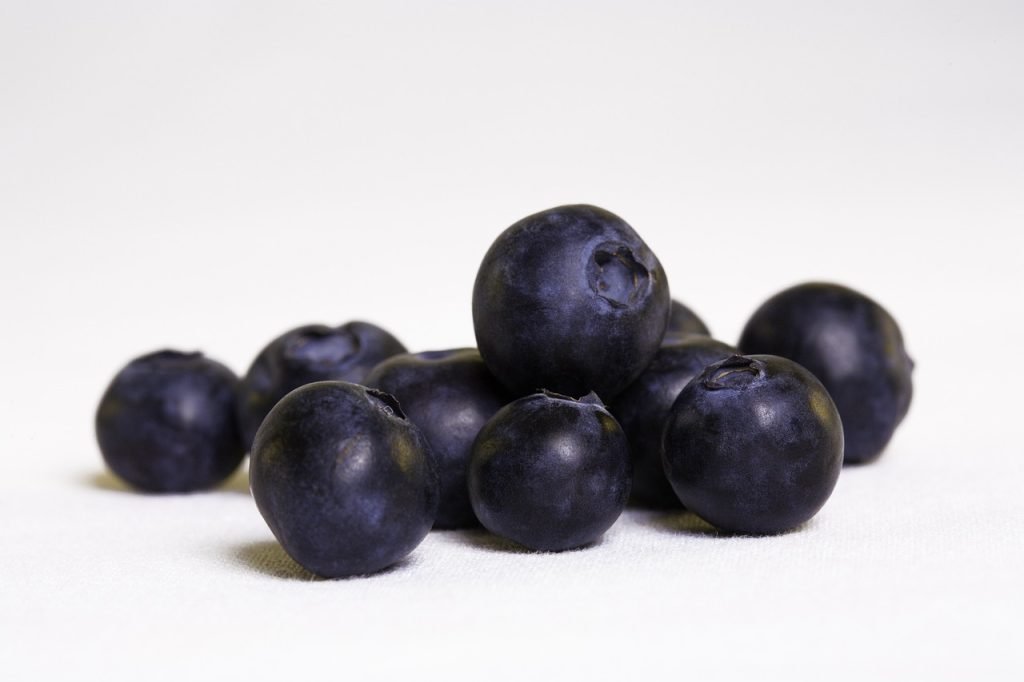Do Super Green Foods Help With Digestion?
Are you curious to know if super green foods can actually assist with digestion? Well, wonder no more! In this article, we will explore the potential benefits of incorporating super green foods into your diet and how they might contribute to better digestive health. So, let’s dig in and discover if these nutrient-rich powerhouses live up to their reputation in aiding digestion.

What are super green foods?
Definition of super green foods
Super green foods refer to a category of nutrient-rich foods that are packed with vitamins, minerals, and antioxidants. These foods are typically vibrant green in color and offer numerous health benefits. They are often hailed as nutritional powerhouses that can support overall well-being and improve digestion.
Types of super green foods
There is a wide variety of super green foods available, each with its unique composition and benefits. Some popular examples include:
- Spinach: This leafy green vegetable is low in calories and high in nutrients, such as iron, calcium, and vitamins A and C. It also contains fiber, which aids digestion.
- Kale: Similar to spinach, kale is rich in nutrients and fiber. It is an excellent source of vitamins K, A, and C, as well as minerals like copper and potassium.
- Spirulina: Spirulina is a blue-green algae that is often consumed in powder or tablet form. It is highly nutritious, containing protein, iron, vitamins B and C, and antioxidants.
- Chlorella: Chlorella is another type of algae known for its high protein and chlorophyll content. It also provides vitamins, minerals, and antioxidants that support digestive health.
- Broccoli: Broccoli belongs to the cruciferous vegetable family and is packed with fiber, vitamin C, and other essential nutrients. It can help regulate digestion and promote a healthy gut.
Benefits of super green foods
Super green foods offer a host of benefits for digestion and overall health. Some key advantages include:
- Improved nutrient absorption: Super green foods are dense in nutrients, making them an excellent addition to your diet. These nutrients support the absorption and utilization of other essential components, maximizing the nutritional value of your meals.
- Enhanced digestion: The high fiber content in super green foods promotes healthy digestion by adding bulk to the stool and facilitating regular bowel movements. This can help prevent issues like constipation and maintain a smooth digestive process.
- Boosted immunity: Super green foods are rich in antioxidants, vitamins, and minerals that contribute to a strong immune system. By supporting your body’s defense mechanisms, these foods may help reduce the risk of digestive infections and inflammation.
- Alkalizing properties: Many super green foods have alkalizing properties that can help balance the body’s pH levels. This can benefit digestion by reducing acidity and promoting a more alkaline environment, which is considered optimal for digestive health.
- Reduced inflammation: Chronic inflammation can contribute to various digestive issues. Super green foods, with their anti-inflammatory properties, can help alleviate inflammation in the digestive tract and promote a healthier gut environment.
Importance of digestion
Explanation of digestion
Digestion is the process by which your body breaks down food into smaller particles to extract essential nutrients. It begins in the mouth, where food is chewed and mixed with saliva, and continues through the esophagus, stomach, small intestine, and large intestine.
During digestion, specific enzymes and stomach acid aid in breaking down food into nutrients like proteins, carbohydrates, and fats. These nutrients are then absorbed into the bloodstream through the walls of the intestines and transported to different parts of the body to support various functions.
Role of digestion in overall health
Proper digestion is vital for overall health as it ensures the effective utilization of nutrients and the elimination of waste products. When digestion is compromised, the body may struggle to absorb essential nutrients, leading to deficiencies and various health issues.
Digestion also plays a crucial role in maintaining a healthy gut microbiome, which refers to the community of beneficial bacteria residing in the digestive system. These bacteria aid in digestion, support immune function, and contribute to overall well-being.
Common digestive issues
Digestive issues are prevalent and can significantly impact one’s quality of life. Some common digestive problems include:
- Bloating and gas: Excessive gas production and bloating can occur due to various factors, such as poor digestion, food intolerances, or bacterial imbalances in the gut.
- Constipation: Constipation refers to infrequent bowel movements and difficulty passing stool. It can cause discomfort, pain, and a sense of incomplete evacuation.
- Acid reflux: Acid reflux occurs when stomach acid travels back up the esophagus, causing a burning sensation in the chest and throat. It is often triggered by certain foods, lifestyle factors, or a weakened lower esophageal sphincter.
- Irritable bowel syndrome (IBS): IBS is a common digestive disorder characterized by abdominal pain, bloating, changes in bowel habits, and other symptoms without an identifiable cause.
How super green foods aid digestion
Rich in fiber
Fiber is a crucial component of a healthy diet, and super green foods are an excellent source of this essential nutrient. Fiber adds bulk to the stool, helps regulate bowel movements, and promotes a healthy digestive system.
Consuming an adequate amount of fiber from super green foods can prevent constipation and improve overall digestion. It also acts as a prebiotic, providing nourishment for beneficial gut bacteria and supporting a balanced gut microbiome.
Enzyme content
Enzymes are proteins that catalyze chemical reactions in the body, including those involved in digestion. Super green foods contain natural enzymes that can aid in the breakdown of proteins, carbohydrates, and fats, making the digestion process more efficient.
These enzymes, such as amylase, lipase, and protease, work alongside the body’s own digestive enzymes to enhance the breakdown and absorption of nutrients. Including super green foods in your diet can contribute to better digestion and nutrient utilization.
Alkalizing properties
The pH level of your body plays a significant role in digestion. The digestive system functions optimally in a slightly alkaline environment, and super green foods can help maintain this balance.
While many processed and unhealthy foods tend to be acidic, super green foods have alkalizing properties. By consuming more alkaline foods, you can neutralize excess acidity in the body, promote a better pH balance, and support healthy digestion.
Fiber and digestion
Types of fiber
There are two main types of dietary fiber: soluble and insoluble fiber.
- Soluble fiber: This type of fiber dissolves in water and forms a gel-like substance in the digestive tract. It helps slow down digestion, regulate blood sugar levels, and promote the growth of beneficial gut bacteria. Foods rich in soluble fiber include oats, beans, lentils, and some fruits and vegetables.
- Insoluble fiber: Insoluble fiber, on the other hand, does not dissolve in water and adds bulk to the stool. It aids in maintaining regular bowel movements and preventing constipation. Whole grains, nuts, seeds, and many vegetables are excellent sources of insoluble fiber.
Benefits of dietary fiber for digestion
Including an adequate amount of dietary fiber, such as that found in super green foods, is essential for optimal digestion. Some benefits of fiber for digestion include:
- Regular bowel movements: Fiber adds bulk to the stool, promotes regularity, and prevents constipation. It helps move waste products through the digestive tract more efficiently.
- Improved gut health: Dietary fiber acts as a prebiotic, providing nourishment for beneficial gut bacteria. These bacteria help break down fiber, produce short-chain fatty acids, and promote a healthy gut environment.
- Reduced risk of digestive disorders: Consuming enough fiber has been linked to a lower risk of developing various digestive issues, including diverticulitis, hemorrhoids, and certain types of colon cancer.
- Weight management: High-fiber foods tend to be more filling, helping to control appetite and prevent overeating. This can support weight management and reduce the risk of obesity-related digestive problems.
Effects of lack of fiber
Insufficient fiber intake can have adverse effects on digestion and overall health. It may lead to:
- Constipation: Without enough fiber, the stool becomes hard and difficult to pass, resulting in constipation and discomfort.
- Irregular bowel movements: Inadequate fiber intake can disrupt the regularity of bowel movements, leading to inconsistent digestion patterns.
- Increased risk of digestive disorders: A lack of fiber in the diet has been associated with a higher risk of developing diverticulitis, constipation, and other digestive disorders.
- Altered gut microbiome: The gut microbiome thrives on dietary fiber, and a deficiency can disrupt the balance of beneficial bacteria, potentially leading to gut dysbiosis and related digestive issues.
Ensuring an adequate intake of fiber from super green foods and other sources is key to maintaining a healthy digestive system.

Enzymes and digestion
Types of enzymes
Enzymes play a vital role in the digestion process, breaking down different types of nutrients into simpler forms that the body can absorb. Some key enzymes involved in digestion include:
- Amylase: Amylase breaks down carbohydrates, such as starch, into smaller sugar molecules, facilitating their absorption in the small intestine.
- Lipase: Lipase helps break down fats into fatty acids and glycerol, allowing for their absorption and utilization by the body.
- Protease: Protease enzymes break down proteins into amino acids, which can then be absorbed and used for various bodily functions.
Importance of enzymes in digestion
Enzymes are essential for effective digestion and nutrient absorption. Without sufficient enzyme activity, the body may struggle to break down complex nutrients, resulting in poor digestion and potential nutrient deficiencies.
The body naturally produces enzymes for digestion, but incorporating super green foods into your diet can provide additional digestive enzymes. These enzymes can support and enhance the body’s natural digestive processes, helping to break down food more efficiently and increase nutrient availability.
How super green foods provide enzymes
Super green foods, such as spirulina and chlorella, are rich sources of enzymes that can aid digestion. These foods naturally contain enzymes like protease, amylase, and lipase, which can supplement the body’s own enzyme production.
Including super green foods in your diet ensures a sufficient supply of digestive enzymes, potentially improving digestion and nutrient absorption. This is particularly beneficial for individuals with reduced enzyme production or those who struggle with certain types of food breakdown.
Alkalizing properties and digestion
Explanation of body pH
The body’s pH level refers to its acid-alkaline balance, measured on a scale from 0 to 14. A pH of 7 is considered neutral, while values below 7 are acidic, and values above 7 are alkaline.
Acidic vs alkaline foods
Different foods have varying effects on the body’s pH levels. Acidic foods, such as processed meats, refined grains, and sugary beverages, can increase acidity in the body. On the other hand, alkaline foods, like super green foods, fresh fruits, and vegetables, have an alkalizing effect.
Effects of alkalizing foods on digestion
Super green foods with alkalizing properties can help maintain a more balanced pH level in the body, benefiting digestion in several ways:
- Reduced acidity: Many people experience discomfort and digestive issues when their body becomes too acidic. By consuming alkalizing super green foods, you can help neutralize excess acidity, thus alleviating symptoms like heartburn and acid reflux.
- Enhanced gut function: An overly acidic environment in the gut can disrupt the balance of beneficial bacteria, potentially leading to dysbiosis and digestive problems. Alkalizing foods help create a more favorable environment for beneficial bacteria to thrive, promoting a healthy gut microbiome.
- Reduced inflammation: Acidic conditions in the body can contribute to inflammation, which can exacerbate digestive issues. Alkalizing super green foods can help reduce inflammation in the digestive tract, alleviating discomfort and supporting overall digestive wellness.
Incorporating alkalizing super green foods into your diet is a natural way to promote a healthier pH balance and support optimal digestion.

Super green foods for specific digestive issues
Super green foods for bloating and gas
- Ginger: Although not a super green food, ginger is known for its anti-inflammatory properties and can help reduce bloating and gas.
- Peppermint: Peppermint has been used for centuries to alleviate indigestion and bloating. It can be consumed as a tea or added to meals as a flavoring agent.
Super green foods for constipation
- Chia seeds: Chia seeds are a fantastic source of fiber, providing both soluble and insoluble fiber. These seeds absorb water and can help add bulk to the stool, promoting regular bowel movements.
- Flaxseeds: Flaxseeds are rich in fiber and promote regularity. They can be added to smoothies, yogurt, or baked goods.
- Aloe vera: Aloe vera juice can have a gentle laxative effect and may help relieve constipation. It is important to consult with a healthcare professional before consuming aloe vera for medicinal purposes.
Super green foods for acid reflux
- Papaya: Papaya contains an enzyme called papain, which aids in digestion and can help alleviate symptoms of acid reflux.
- Cucumber: Cucumbers are hydrating and have a high water content, making them a soothing option for acid reflux symptoms.
Recommended super green foods for digestion
Spinach
Spinach is a versatile and nutrient-dense super green food that offers numerous digestive benefits. It contains fiber, vitamins, and minerals that support healthy digestion and can be easily incorporated into your meals. Add spinach to salads, smoothies, omelets, or sauté it as a side dish.
Kale
Kale is another highly nutritious super green food that promotes digestion and overall well-being. Its fiber content aids in regular bowel movements, while its high vitamin and mineral content supports optimal nutrient absorption. Enjoy kale in salads, soups, stir-fries, or as kale chips for a healthy snack.
Spirulina
Spirulina is a blue-green algae that is rich in essential nutrients, including protein, vitamins, and minerals. Its high chlorophyll content supports detoxification and digestion. Add spirulina powder to smoothies, juices, or energy bars for a nutritious boost.
Chlorella
Chlorella is a nutrient-dense algae that offers various health benefits, including improved digestion. It contains enzymes, fiber, and chlorophyll, which aid in breaking down food and supporting a healthy gut. Chlorella can be consumed as tablets or added to smoothies or salads in powdered form.
Broccoli
Broccoli is a cruciferous vegetable packed with fiber, vitamins, and minerals that promote a healthy digestive system. It contains compounds that support detoxification and may help reduce inflammation in the gut. Enjoy broccoli steamed, roasted, or added to stir-fries and salads.
Tips for incorporating super green foods into your diet
Adding super green foods to smoothies
One of the easiest ways to incorporate super green foods into your diet is by adding them to smoothies. Simply blend a handful of spinach or kale with your favorite fruits, yogurt, and liquid of choice. You can also include spirulina or chlorella powder for an extra nutritional boost.
Including super green foods in salads
Super green foods can be a vibrant addition to your salads, providing both flavor and nutrition. Toss some spinach, kale, or chopped broccoli into your salad mix. For added texture and protein, sprinkle some chia or flaxseeds on top.
Using super green food powders
Super green food powders, such as spirulina or chlorella, can be conveniently incorporated into various recipes. You can mix them into energy balls, homemade granola bars, or even sprinkle them over avocado toast or roasted vegetables.
Conclusion
Incorporating super green foods into your diet can have a significant positive impact on digestion and overall health. These nutrient-dense foods provide essential fiber, enzymes, and alkalizing properties that support a healthy digestive system and optimize nutrient absorption.
Whether you choose to enjoy spinach and kale in your salads, add spirulina or chlorella to your smoothies, or incorporate these super green foods into other meals, they have the potential to make a real difference in your digestive well-being.
Remember, a balanced diet that includes a variety of super green foods, along with other whole foods, is crucial for maintaining optimal digestive health. So, grab a bunch of spinach, whip up a nutrient-packed smoothie, and experience the benefits of super green foods for yourself. Your digestive system will thank you!




